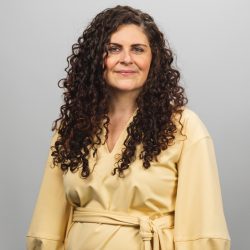Strand 1: Collaborative and Proactive Solutions, Moving From Power and Control to Collaboration and Problem-Solving – 3 days
Dr. Ross Greene
This is the innovative, evidence-based, trauma-informed model Dr. Ross Greene describes in his influential books The Explosive Child, Lost at School, Lost & Found, and Raising Using Beings. The CPS model has transformed thinking and practices in countless families, schools, inpatient psychiatry units, and residential and juvenile detention facilities throughout the world, and has been associated with dramatic reductions in adult-child conflict, concerning behaviors, disciplinary referrals, detentions, suspensions, restraints, and seclusions. The model represents a significant departure from discipline-as-usual: it focuses on solving problems rather than on modifying behavior, emphasizes collaborative rather than unilateral solutions, encourages proactive rather than reactive intervention, de-emphasizes diagnostic categories, and provides practical, research-based tools for assessment and intervention. Participants in this workshop will leave with an understanding of the underpinnings of the model, its refinements over the past 8-10 years, and practical assessment and intervention tools that can be brought back to and used in these diverse settings.

Strand 2: Functional Assessment and Positive Behavior Support: Tools to Understand Why Problem Behaviors Occur and How to Make It Better! – 3 days
Dr. Brenda Fossett
This strand will introduce participants to an evidence-based approach for assessing and intervening on problem behavior. Participants will learn about common assessment strategies that clarify why an individual is engaging in problematic behaviors in a particular setting or situation. In addition, participants will learn about common intervention strategies designed to prevent problem behaviors from occurring and teach more appropriate behaviors. Participants will have the opportunity to practice specific assessment and intervention planning activities during the three-day strand, using case examples provided by the presenter. Participants will also receive advice for accessing ongoing in support in conducting behavioral assessments and developing positive behavior support plans in their individual settings.
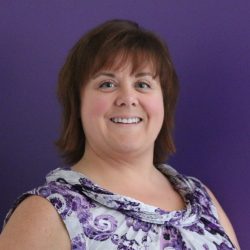
Strand 3: Transition to Inclusive Life after High School: Self-Determination Instruction, Customized Employment and BC’s New Curriculum – 3 days
Dr. Paul Malette
Deborah Simak
BC’s New Curriculum and Graduation Program are designed so that students graduate from secondary school as educated citizens, with the knowledge, competencies, and skills they will need to transition successfully into higher education, training and the workforce. To date, students with disabilities, particularly students with developmental disabilities, have had limited opportunities to transition to higher education, training and the work force.
This three-day strand focuses on current, evidence based high school transition practices for students with diverse abilities. An emphasis is placed on the predictors for an inclusive life after high school; self-determination and paid employment in the high school years. Participants will be shown detailed exemplars of research in practice. Specifically, participants will be shown the process of self-determination instruction, and students developing and acting upon their Self-Directed Life Plans with a focus on paid employment and customized employment practices in the high school years.
This three-day strand is led by Dr. Paul Malette and Deborah Simak of CBI Consultants (formerly Director of Learning Support, Burnaby School District). The three-day strand is interactive with inspiring British Columbia based stories and practices that support BC’s New Curriculum, core competencies and successful career-life development for all students. The strand emphasizes home, school, and community collaboration and systems change. The strand is designed for School Trustees, District Teams, School Based Teams, classroom teachers, educational assistants, parents, community agencies and CLBC staff. Participants are encouraged to come as teams to collaborate and leave the strand and Institute with action plans to put research into practice.

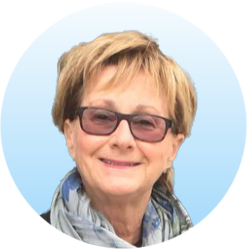
Strand 4: Nurturing all Learners Through Inclusive Literacy Practices – 3 days
Dr. Donna Kozak
Dr. Leyton Schnellert
Every child arrives at school with a multitude of literacies. We will explore systems, structures and strategies that build from children’s funds of knowledge to develop essential school literacy skills for our diverse learners where purpose, context, and responsiveness are at the core of effective practice.
Over the three days we will revisit and deepen our understandings of reading, writing workshop, literacy centres and stations, culturally responsive teaching, and critical literacies. Special attention will be paid to developing inclusive literacy communities where every child is an author and inquirer (Tier 1), and opportunities for supports that scaffold emerging skill development (Tier 2 and 3).
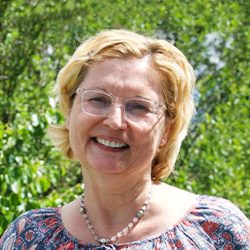
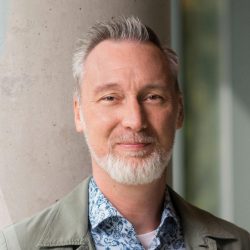
Strand 5: Competency & Strength Based IEPs for Inclusive Classrooms – 3 days
Dr. Shelley Moore
You have probably heard about BCs Competency Based Individual Education Plans (IEPs), but do you know where they came from? This institute will focus on why IEPs are changing, and how they can be used to build students agency in strength based way that align to BCs redesigned curriculum. We will look at how IEPs can be helpful in advocating, and in designing for support and instruction for inclusive classrooms.
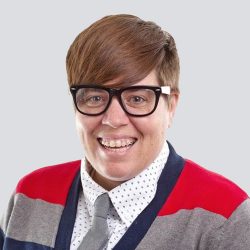
Strand 7: Why Children and Youth Are More Anxious, Aggressive, and Shut Down Than Ever—And What We Can Do About It – 3 days
Hannah Beach
Tamara Strijack
Children and youth are more anxious, aggressive, and shut down than ever.
We were seeing these shifts before the pandemic and now it is only intensified. Faced with this epidemic of emotional health crises and behavioural problems, working with kids has become more challenging than ever. Our children are struggling. We might see anxiety, resistance, attention problems, bullying, aggression, bossiness, acting out or maybe even kids who seem completely shut down. We will unpack the dynamics at play and what we can do to address these issues at their root so that lasting change becomes possible.
This course is a trauma-informed guide to creating the conditions for change. It equips those who lead children and youth with attachment-based practices that support both individual students as well as the collective learning community. Join Hannah and Tamara for three pivotal days that will shift how you understand mental health, empower you with insights and practical strategies, and reaffirm the vital importance of your caring leadership – needed now more than ever.
Our approach is attachment/relationship-based, inclusive, rooted in developmental science, insight based (beyond behaviour) and trauma-informed.

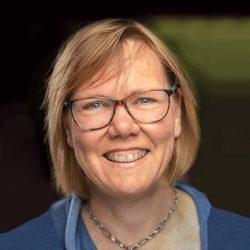
Strand 9: UDL: Eliminating barriers and building on strengths in your classroom (3 days)
Dr. Carly Christensen
Social Justice in education is facilitated by implementing Universal Design for Learning (UDL) to create more equitable classrooms for all learners. As such, within this strand, we will examine disability/exceptionality through the lens of social justice in education. This 3-day strand will build your capacity to implement UDL within your own unique settings.
The benefits of UDL will be explored through the voices of students with experiences being learners in UDL-designed classrooms. We will explore student variability, emphasizing the removal of barriers and building on strengths. Misconceptions and myths about UDL will be examined, alongside evidence from the field. You will be invited to engage in learning, and unlearning, concerning common classroom practices. We will examine our own teaching strategies focusing on identifying and removing barriers. We will practice and demonstrate the reimagining of lesson planning and assessment from a UDL perspective. You will leave this strand with actionable steps in your UDL journey to creating equitable classrooms..
This strand is designed with school-based teams, general teachers, and educational assistants specifically in mind. District teams, parents, and community agencies would also benefit from learning about the possibilities and benefits of designing learning spaces using UDL.
